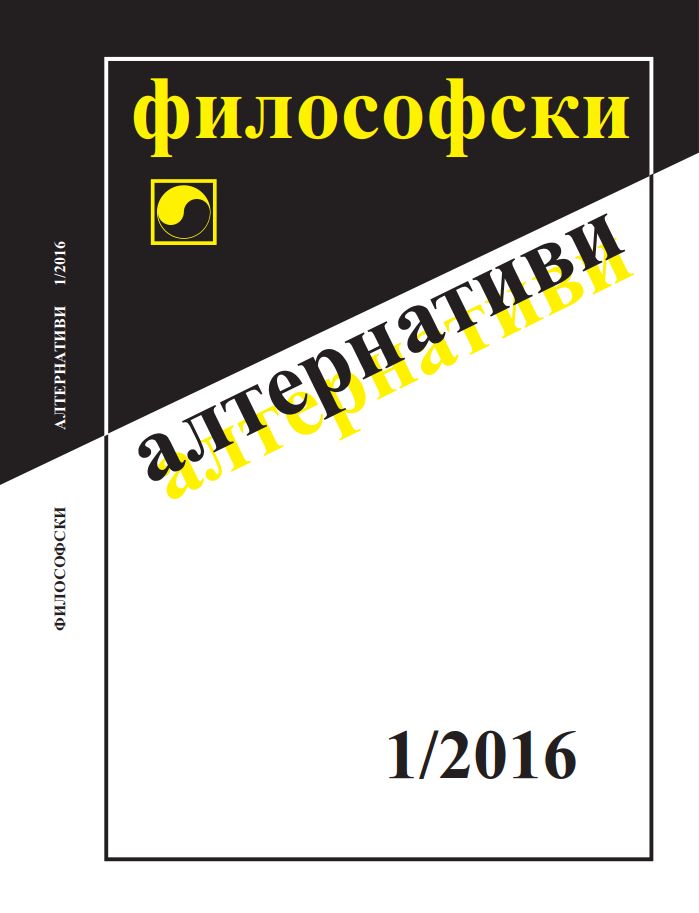
We kindly inform you that, as long as the subject affiliation of our 300.000+ articles is in progress, you might get unsufficient or no results on your third level or second level search. In this case, please broaden your search criteria.

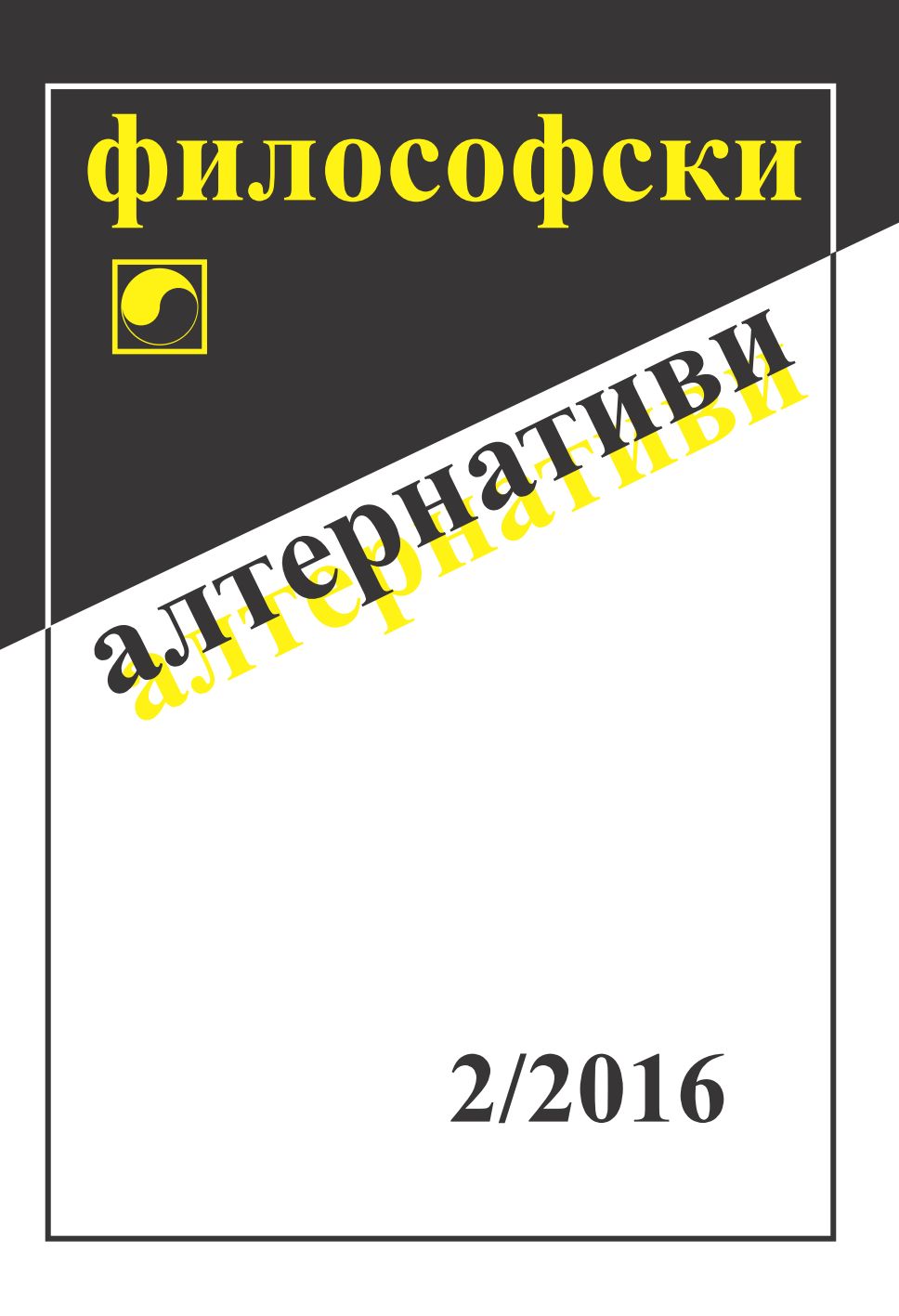
For centuries, the problem regarding the origin of human morality and human values was considered to be a field reserved for philosophy, anthropology, religion and the other humanities. Three or four decades ago, neuroscience made certain discoveries that challenge normative moral theories. This article aims to present some of the best known examples of research indicating the empirical origin of morality and human values. I propose the idea that the basis of human morality and values can be traced successfully to their neurobiological origins. The evolution of morality and human values has a long history, and their nature is not easy to explain.They originated as primary emotions and developed into higher brain functions, ultimately resulting in our capacity for moral abstractions. The nature of morality and human values can be successfully investigated in the perspective of neuroscience without postulating a new normative ethics or relying on extreme reductionism.
More...
The article consecutively analyzes the different meanings of the terms „knowledge“, „justice“, „freedom“ and „democracy”; the author concludes it is useless to generalize these meanings. To dwell on knowledge, justice, freedom and democracy in general in a text, without specifying the meanings implied in them, results in an insurmountable lack of clarity, which makes the whole text senseless.
More...
The leading idea in this essay concerns knowledge-seeking through questioning. Asking a question and receiving an answer (an interrogative move) is radically different from a logical deduction (a logical inference move). However, from a strategic viewpoint, the two steps are parallel, in the sense that the principles guiding the choice of the best questions to ask are analogous with the strategic principles guiding the choice of the best logical inferences that can be drawn from given premises. Another main insight that the interrogative approach yields is the possibility of a rational, and even logical, theory of discovery. In that case, the problem of justification becomes redundant; nevertheless, we can develop an interesting and rich theory of discovery, of which the centerpiece is the problem of optimal question selection.
More...
The present papers attempts to summarize Jaakko Hintikka's contributions to the development of logic, semantics and philosophy of mathematics.
More...
The article discusses how the body is regarded as a machine by the Contemporary school of philosophy. The body-machine is depersonalized and converted into a tool. It has has two functions – a symbolic one, whereby it is used as a model and tool by Panoptic power, and the function of servicing real machines. The article specially focuses on athletes’ bodies. They are very often described as machines. The problem with the body-machine, the depersonalized body, is that a faceless body can be used as a tool, a means of control. But at the same time, it is not a person and is without human rights.
More...
This essay uses the method of Tensegrity – a means of dynamic methodological triangulation that allows for open threads and poetic interventions.
More...
The article offers an overview of the 15th Congress of Logic, Methodology and Philosophy of Science, held on 3-8 August 2015 in Helsinki. It includes a brief outline of the history of these congresses, with special attention to its trends of development and comparisons between the last five of them. These trends are indicative of the changes taking place in the development of philosophy of science over the last 16 years. A special focus is put on the main topics of the congresses as well as on some of the most significant presentations. Finally, the paper provides information about the Bulgarian participation in the latest congress, which reveals a significant increase compared with the previous ones, which inspires hope that the ascending development of philosophy of science in Bulgaria will continue and its presence at international forums will become increasingly visible.
More...
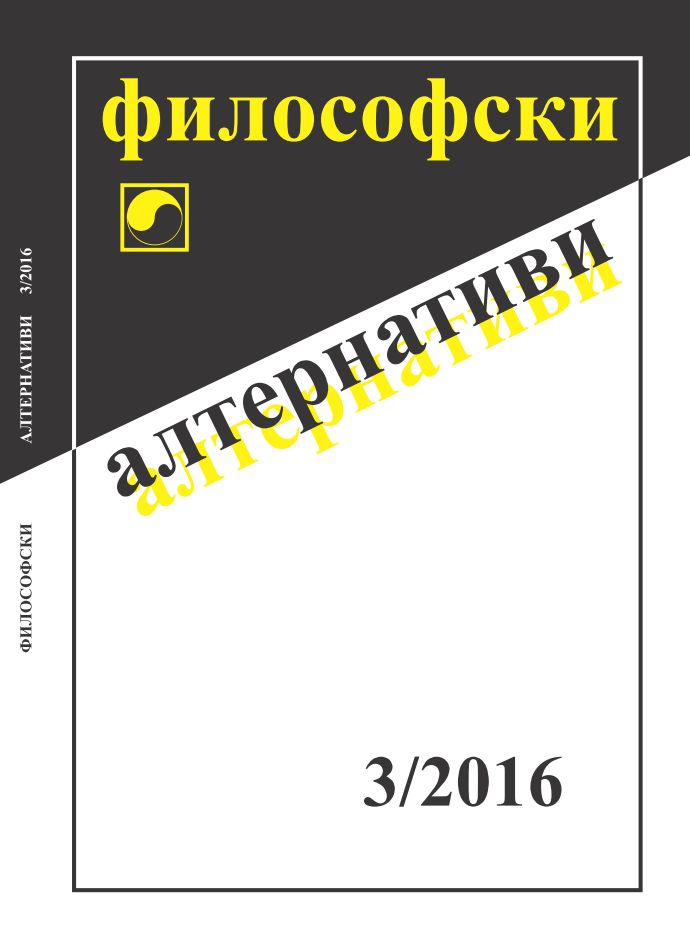
In the first part of the article, play is considered as a sport. In this case, sport is interpreted figuratively - as a metaphor for a particular type of being of humans. Ortega y Gasset’s essential definition of sports as play refers to the urge toward self-overcoming: „the game requires playing, as much as possible, better“. The second part of the article analyzes the relationship between play and „good utopianism“. Finally, the author analyzes the interpretation of Ortega y Gasset’s idea of hunting and reveals another meaning of play – as a form of relaxation from reality. The article draws comparisons between the idea of play in Schiller, Huizinga and Ortega y Gasset.
More...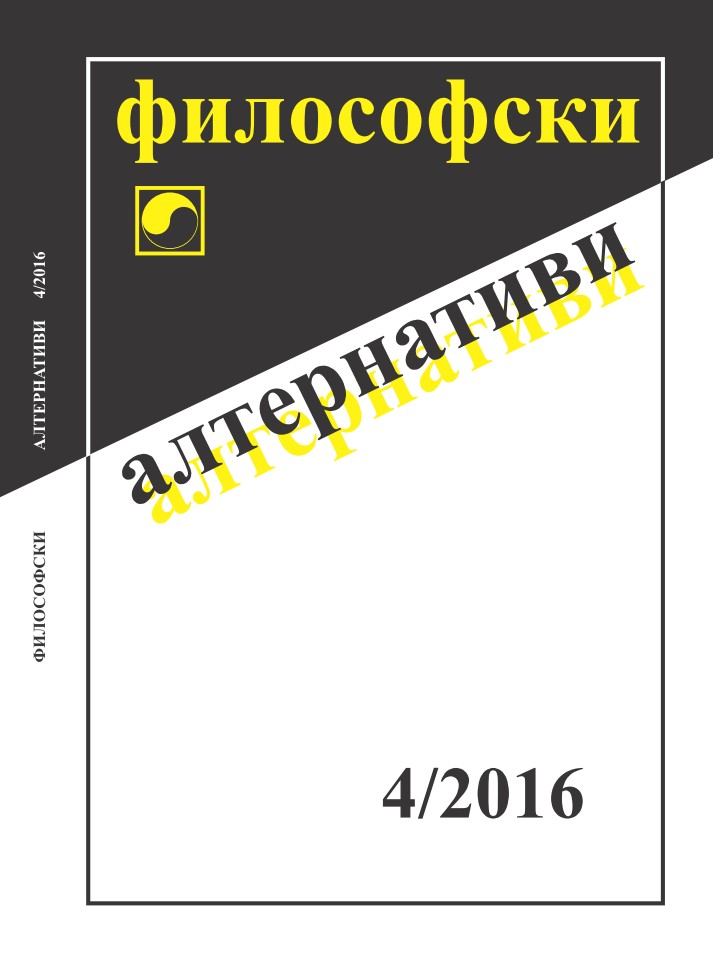
The aim of this paper is to provide arguments for three claims. The first one refers to Einstein’s philosophical commitment to constructive realism. The second claim concerns the variety of the assessments of his theoretical results and methodology. And the third states that, if Einstein ever made a mistake with respect to his theoretical expectations, it was not his introducing the cosmological constant – which he is said to have confessed as his mistake, but his ontological belief expressed in his famous saying „God does not play dice“.
More...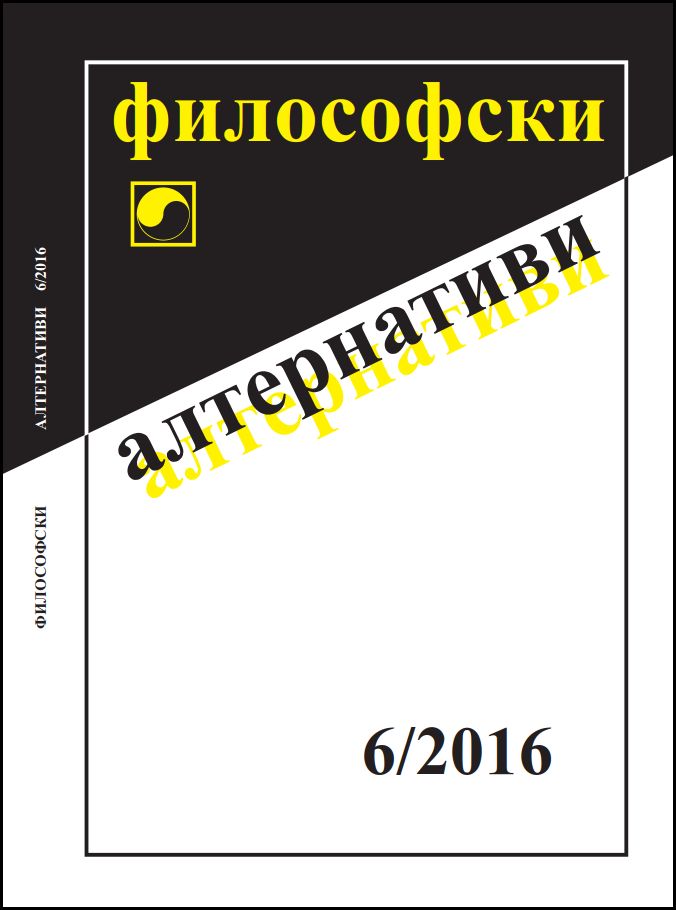
Carl Schmitt and Jan Patočka could be said to belong to different generations of European thinkers. To my knowledge, they never met or had personal contact with each other; nor did they express a stance on each other’s activity, life or thinking. However, the conceptions they built seem to be in mutual controversy; their debate on many standpoints is, as it were, entwined in a crucial clash – crucial as regards the interpretation of the sinuous history and ambiguous heritage of the 20th century.
More...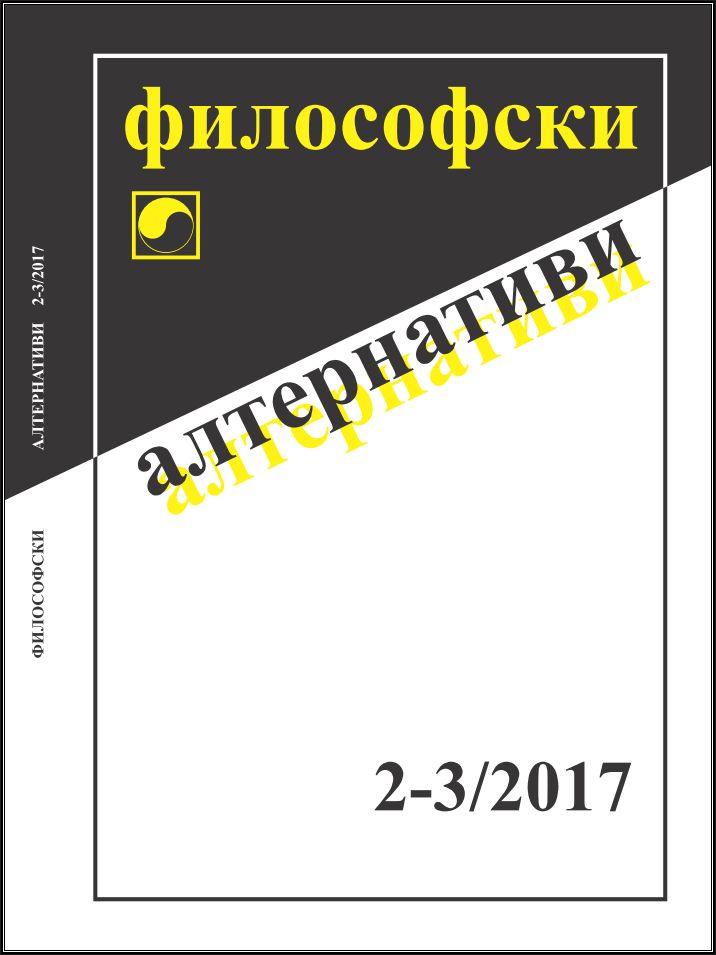
The understanding of “literary figure” is often divided between the narrative character and the rhetorical device. Both meanings are often operatively employed and thematically analysed in contemporary philosophy. The first part of this essay is focused on the effects stemming from the generalization of the role of metaphor and the correlative reduction of the figure in present-day Bulgarian philosophy, with a particular stress on the notion of metaphorical potentiality, introduced by Kristiyan Enchev, and of metaphorical effect, introduced by Dimitar Vatsov. The second part of the essay discusses the use of literary characters (such as Antigone, Don Juan, Bartleby, etc.) in philosophical texts, the main claim being that this use reveals the transfiguration of narrative figures into rhetorical figures, related to the difference between narrative potentiality and character potentiality.
More...
In my article, I introduce the idea of “broken” imagination, splitting it into force and forcelessness. Force – as far as an image, in its plasticity, is released for kinship. Forcelessness – imagination itself comes into contact with the impossible, which in itself is unimaginable. The element of singularity coming from the imagining entity has a weakening effect on the imagination, “weakens” with respect to singular specifics, this being a “weakness” of this particular (subjective) singularity. The forcelessness of the imagination, in turn, carries a un-predefined possibility to create kinship ties between imagery contents as “released time”. The idea of a form without substance that constantly transforms itself raises the question of the truth of the virtual being of the self-transforming form: this is the meaning of а neologistic nomination of the reformed virtualism – virtualetic metamorphysics.
More...
In the language of theory and drama, Niccolò Machiavelli (1469-1527) continues the normative discourse of Boccaccio’s novels and at the same time marks the differentiation between the political and the private spheres, which began in the 14th century. In his treatise "The Prince" (written around 1513), Machiavelli outlines the foundations of a modern political ethics, and in the comedy "The Mandrake" (written around 1518) he shows how the Medieval normative system has turned into an ideology. He also delineates a modern private ethics that goes far into the future; in the course of modernity, this ethics remains dialectically related to the ethics of the political. The message of "The Prince" is frequently reduced to a purely “Machiavellian” theory of power and success, and "The Mandrakе" is interpreted as an illustration of "The Prince". However, Machiavelli is not a “Machiavellian”, and "The Mandrake" is not just a political allegory.
More...
The article compares Max Black’s views on metaphor as substitution, comparison and interplay. The author refers to Alfred Stiеglitz’s theory of equivalents as a demonstration of Black’s interplay theory, showing that, in some aspects, the theory of equivalents has a broader and deeper creative potential. The article presents the development of the theory of equivalents in the works of Bernard Stiеgler, Minor White, and George Legrаdy.
More...
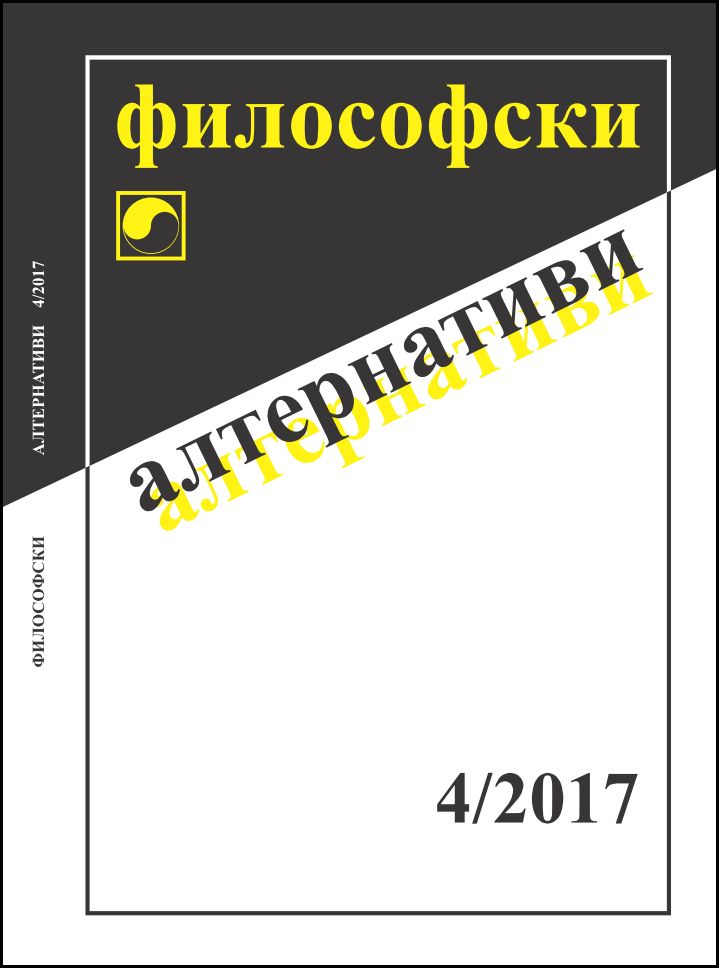
The article presents José Ortega y Gasset’s ideas concerning the novel and reading. The analysis is deployed in two directions: ad intra, “inside”, in the context of Ortega’s philosophy, and ad extra, “outside”, in the context of alternative views on the novel and reading. In the first part of the article, the author argues that José Ortega y Gasset aestheticizes philosophy, bringing it closer to literature. At the basis of this intensive “approximation” of philosophy and literature, lies Ortega y Gasset’s concept of man as “a novelist of himself”. In the second part of the article, comparisons are made between the approach of Ortega y Gasset and that of the Russian formalists with respect to the specificity of the novel. The third section outlines some similarities between Ortega y Gasset’s conception of reading as a “spreading of oneself” and Wolfgang Iser’s literary anthropology. Both thinkers interpret the need to read as a human need to look at the real world, and on ourselves, as being only one of many possibilities. The revealed similarities are treated as signs of belonging to a common transformation processes in the aesthetics of the twentieth century.
More...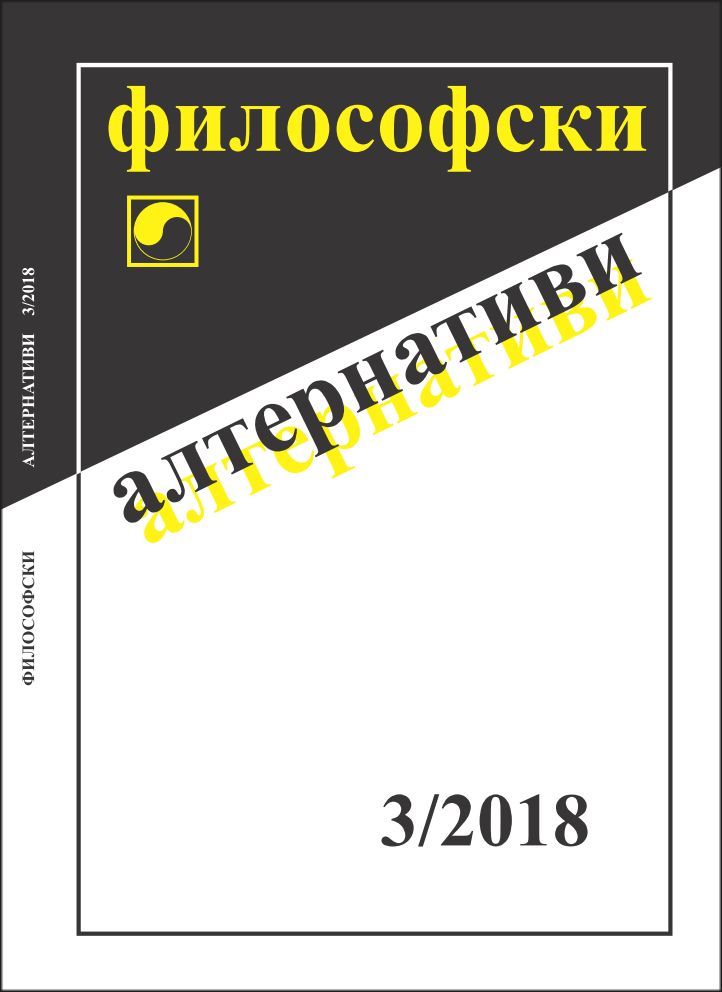

The article analyzes Slavic Philosophy by Dr. Petar Beron (1799-1871), a figure of the Bulgarian national revival who studied philosophy in Heidelberg and medicine in Munich. The book represents a lengthy introduction to his seven-volume Panepistemia, published in Paris in the 1860s. Although a work of philosophy, Slavic Philosophy pertains to the field of Naturphilosophie proper, and the ethnic aspect is present only in the title. It represents a naive attempt on the part of this Bulgarian thinker of the National Revival period “to surpass” the European achievements of his time in using an odd terminology that he constructed by himself on the basis of Greek models.
More...